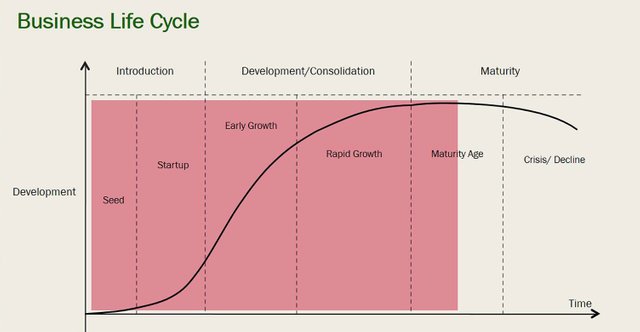Startup valuation; my startup journey / part 5
I have posted 4 previous posts in this series of blog, and I have to say, telling my story and listening to feedbacks, were quite a nice experience itself!
The last part, was about The KISS law; take a look if you haven't.

the whole life is a journey; not only your business :)
In this part, I'm gonna talk about a very valuable issue, which I have suffered from not knowing enough about it, several times! I guess many young entrepreneurs do the same mistake in the first times of offering their startup business to investors, companies, mergers etc:
Valuation
when you are running a startup, you are hyped up at the thought of getting successful, famous, rich, celebrity etc! The atmosphere of startup ecosystem is not very different than crazy world of Alice in Wonderland!
Remember the Cat said to Alice:
I'm not crazy, My reality is just different than yours!
And the essence of the startup, needs that hype! because you may need to last a long run. What about others' definition of reallity?! honestly, it will be needed to be considered when it comes to finance.
If you have a scarce money resource (who doesn't?!) then you should face the truth and respect the real measures of people who are tapping their credit cards on the desk to see on whose business they should bid!
There are several different methods to value your startup in a right approach and avoid undervaluing and overvaluing. Before we get to methods, we need to define some principal terms:
Business life cycle
- Seed and Development
- Startup
- Early Growth And Establishment
- Rapid growth and Expansion
- Maturity (Possible Exit)
- Decline (IF ...!)
From the very beginning, you must assess how viable your startup is, so you can go through the stages, except the 6th! I will talk about how to change the cycle from entering the decline and crisis stage, to starting a new cycle of introductory and growth again; in another post later, ofcourse!
in the life cycle definition, the seed stage is important for Valuation and the steps 4 and 5 are important for exit strategies; which will be a very good subject for another post too!
Valuation Methods
I will focus on below methods, which move through different stages of business life cycle:
Asset-Based Valuation
The logic behind this method is based on tangible, countable and calculable assets, which a business has, generates and holds. Don't close your guards! some businesses may perform better in attracting such investments or from investors with such mentality, but if you think it's not your business, well, try to avoid this method and such people.
The key to success with these type of people is to show them how your business has ties with its older and traditional ways of doing that service, or to make one-to-one correspondence map, between your business and the old ones.
Cash Flow Based Valuation
The Main assumption of such valuation method is:
The cash flow should be real and current, not too old and not yet to happen! When someone talks about cash flow, it means he/she is looking at the business, through a financial window, not the perspective of idea, market disruptions, ambitious dreams etc
Emad Honarparvar:
Complex methods
There are other methods which I believe in the startup ecosystem are more likely to be used. mix of Cash flow studies, current and prediction + measuring the value of intangible assets, the value of the Team, the inner-organization relations and co-founders' attachment to the project plus the feeling in the atmosphere when you are presenting, pitching your project! yes, some call it investors' gut feeling!The Cartoon Image Source
Please keep reading this blog series by following me :) I will write more and more about my own experiences, which I have learnt from the market real conditions! as I started my Master in university, I understood those moments in the real business struggles, were way more valuable than hours of being in the class room, as I finished my courses, I realized a combination of experience and knowledge would be vital for success!
and here I will bring them up together! if you liked this post, give others a chance to read it by resteeming or upvoting.
thanks and stay juicy in your business!


thanks so much for this great article.
thanks for stopping by and leaving me a kind comment :)
Hey Entrepreneur,
I am from MuK IT we are integrating and customizing an ERP-System called Odoo.
We also made a DMS-DocumentManagementSystem, which you can use for free!
If you want to test our software, here is a Demo,
acc: demo
pw: demo
there are modules like POS-Point of sale, Invoicing, Projectmanagement, Inventory, CRM and so on.
If you need any further infos, write me here or an email: [email protected]
Hi @gexi
I liked your odoo.com website, liked your demo too.
I just don't use ERP... So I may not be interested.
and I didn't like the fact, you have mass-commented this message to many accounts. it's kinda spam.
wish you luck btw
ok np thx :)
Nice read. I leave an upvote for this article thumbsup
Thank you my friend 👍🙇🏻
To listen to the audio version of this article click on the play image.

Brought to you by @tts. If you find it useful please consider upvoting this reply.
Bringing in the Alice cat is most likely the smartest thing you could have done. Because that is actually the clearest way of explaining the discrepancy between developers and users
first, thank you for being here, it means a LOT to me :)

Alice is my fav! I mean, Lewis Carroll is my favorite. I have used many of the quotes in my seminars and speeches on startups.
the below image, is one page of my presentation on "Risk vs Uncertainty", using and referring to "Alice Adventures in Wonderlands" quotes.